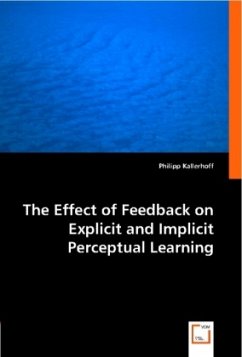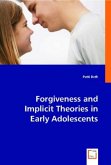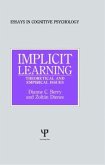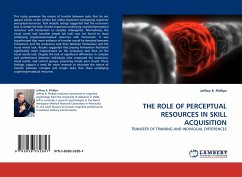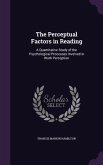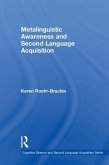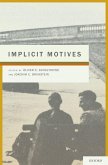Perceptual learning is an example of plasticity in the brain. This thesis investigates perceptual learning with feedbacks in psychophysical experiments and different theoretical models. The first psychophysical experiment tests the discrimination performance with and without feedbacks, while the second experiment tests the influence of feedbacks on an irrelevant task. In both psychophysical experiments the discrimination threshold decreased consistently for all subjects and tested orientations. As expected, the discrimination performance increased most for the feedback correlated orientation. The modelling considers learning rules derived from the REINFORCE algorithm and from principle measures of the population code representation, i.e. the Fisher information. In the theoretical model, the discrimination performance increased at the trained orientation applying the Fisher information, but decreased using a learning principle derived from the REINFORCE algorithm. The main findingthrough comparison of the psychophysical results and the theoretical models, is that optimizing the Fisher information, but not applying the REINFORCE algorithm, reflects the experimental results.
Bitte wählen Sie Ihr Anliegen aus.
Rechnungen
Retourenschein anfordern
Bestellstatus
Storno

